order histories, retained contact details for faster checkout, review submissions, and special promotions.
Forgot password?
order histories, retained contact details for faster checkout, review submissions, and special promotions.
Location
Corporate Headquarters
Vector Laboratories, Inc.
6737 Mowry Ave
Newark, CA 94560
United States
Telephone Numbers
Customer Service: (800) 227-6666 / (650) 697-3600
Contact Us
Additional Contact Details
order histories, retained contact details for faster checkout, review submissions, and special promotions.
Forgot password?
order histories, retained contact details for faster checkout, review submissions, and special promotions.
MSLN / Mesothelin
mesothelin
This gene encodes a preproprotein that is cleaved into two products, megakaryocyte potentiating factor and mesothelin. Alternative splicing results in multiple transcript variants. Mesothelin is a cell surface differentiation antigen found in mesothelial cells, mesotheliomas and ovarian cancers. Although the function of mesothelin is unknown, it may play a role in cellular adhesion. Three transcript variants have been described. Their protein products were initially named megakaryocyte potentiating factor (MPF), mesothelin, and the soluble member(s) of the mesothelin/MPF family. MPF is a cytokine with megakaryocyte potentiating activity. Mesothelin null mutant mice show a normal phenotype suggesting that mesothelin function is not essential for growth or reproduction in mice (Bera et al., 2000).
| Gene Name: | mesothelin |
| Synonyms: | MSLN, CAK1 antigen, MPF, SMRP, Mesothelin, CAK1 |
| Target Sequences: | NM_013404 NP_037536.2 Q13421 |
Publications (5)
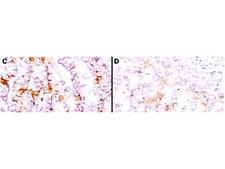
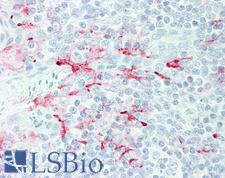
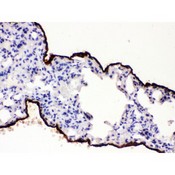
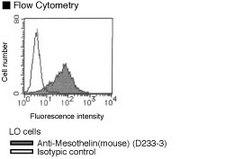
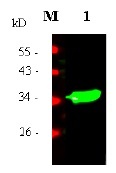
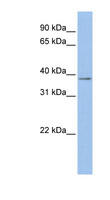



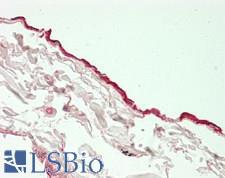
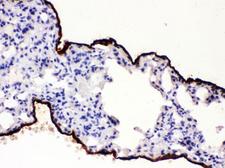

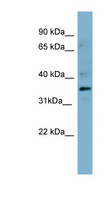
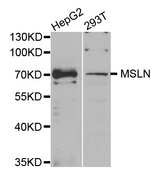
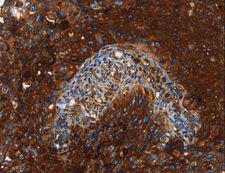
If you do not find the reagent or information you require, please contact Customer.Support@LSBio.com to inquire about additional products in development.












